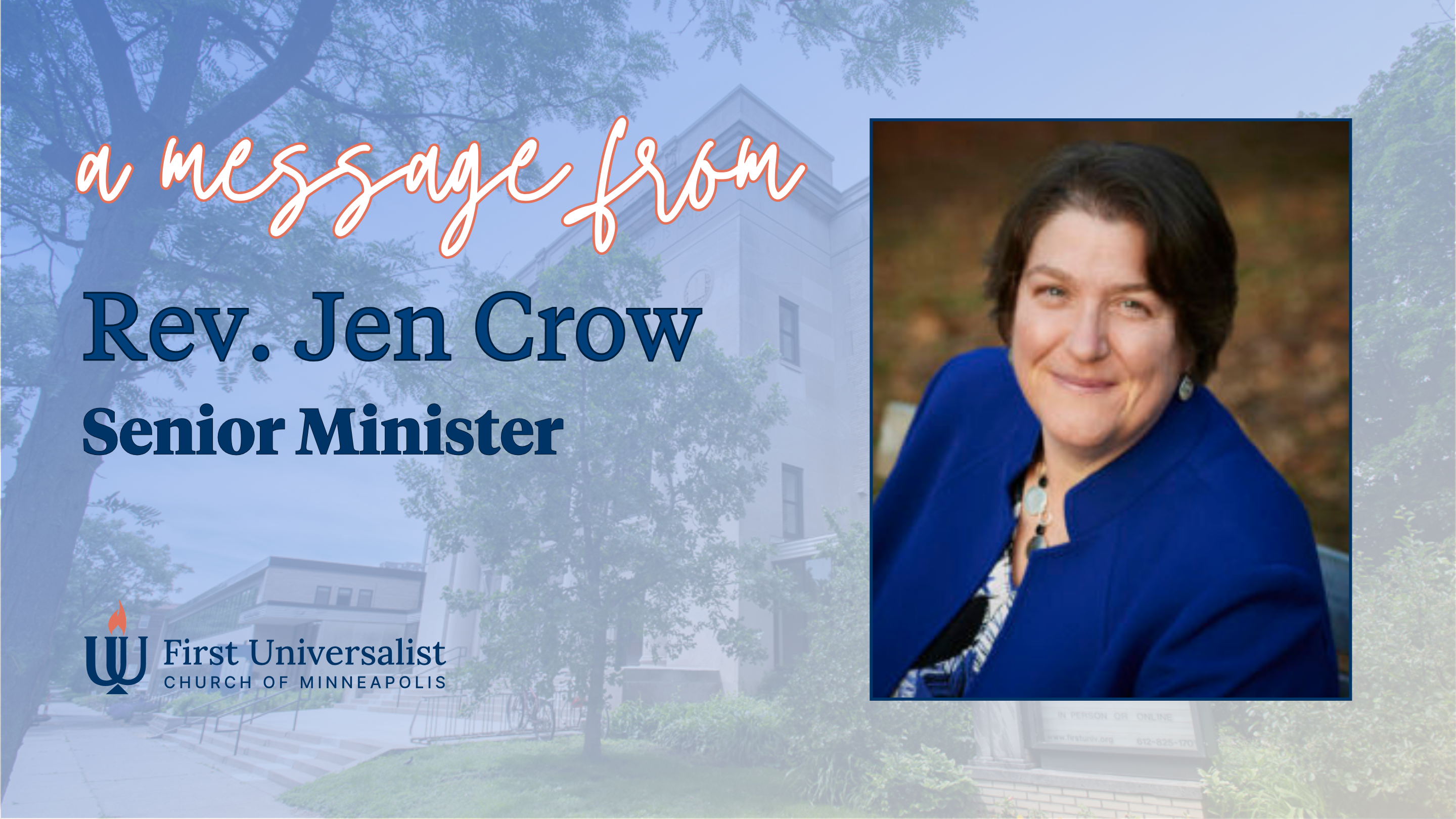We carry each other
News –

Two Tuesdays ago, I responded to a call from a local attorney to our interfaith immigration network asking supporters to show up at Courtroom 7B at the federal district court in St. Paul. The case of Antonia Aguilar Maldonado was going to be heard—and they wanted witnesses there as they argued for her release from detention at the Kandiyohi jail. Ms. Aguilar Maldonado is a young woman who crossed the border into the United States as an unaccompanied minor many years ago. Since then, she’s followed the rules and requests of our immigration system. She’s built a life and a family here, and is now a mother of two young children, one of whom is a nursing infant. When Ms. Aguilar Maldonado showed up for an immigration hearing in July, the Department of Homeland Security detained her, even though the immigration judge ordered her released on bond. She was separated from her children, and placed in a criminal facility even though she has no criminal record, is not a flight risk, and presents no harm to the community.
As I made my way to the court, I knew I was carrying each and everyone of you with me. I knew, too, that I was carrying our faith with me. The faith that names each and every one of us as whole and holy and worthy, welcome and wanted, all with room to grow. The faith that says there is a light in each human heart—that no one of us is more or less holy or valuable than another—and it is up to us here on earth to create the conditions in which that light in each of us can shine.
Sitting in the courtroom, shoulder to shoulder with people of faith from a variety of traditions, we waited for the judge to enter. We made small talk, I breathed my three intentional breaths, and I prayed. I prayed that wherever Ms. Aguilar Maldonado was, because she wasn’t in that courtroom, that she could or would feel that she was not alone, that others knew and named her as whole and holy and worthy, welcome and wanted—even as the attorney from the Department of Homeland Security who sought to keep her imprisoned and separated from her children referred to her repeatedly as “an alien.” I prayed that the attorneys fighting for her release would feel strengthened by our presence in the courtroom, and that regardless of the outcome that day, that they or someone else would continue to fight for her release.
I listened as the judge made their ruling, lost much of the time in the detail of the legalese, wondering if this is what it felt like when the Catholic Church used to say mass in Latin—and how anyone who didn’t speak English would ever know what was happening to them in that room. I took heart when the judge made it clear that Ms. Aguilar Maldonado deserved habeas corpus: a fundamental legal right that prevents unlawful detention. It means a person who has been arrested or detained has the right to come before a judge to determine if their detention is legal, and if it is not, the judge can order them released. This was what was happening that day.
I exhaled when I heard the judge say something like “the court considers the petitioner’s claim of irreparable harm in separating a nursing child from its mother to be self-evident.” And when the judge finished reading their ruling from the bench and ordered that the Department of Homeland Security did not have standing in this situation and that the immigration judge’s ruling allowing Ms. Aguilar Maldonado’s release on bond must be followed, I could not help but feel the tears well up in my eyes. When the judge stood and left the courtroom, the gathered body erupted in applause. Relief. Respect. Hope. After irreparable harm had already been done, Ms. Aguilar Maldonado was released.
The poet, Andrea Gibson wrote, “Let your heart break so your spirit doesn’t.” Some days that feels like an awfully tall order. And I trust that with our breaking hearts and our strengthened spirits, we carry each other into courtrooms and classrooms and hospital rooms. We carry each other and our faith onto playgrounds and buses and into board rooms and voting booths. Working together, our faith can be reflected in the world we build. Each and every person—whole and holy and worthy, welcome and wanted, all with room to grow. No exceptions. This is the world we will continue to create together.